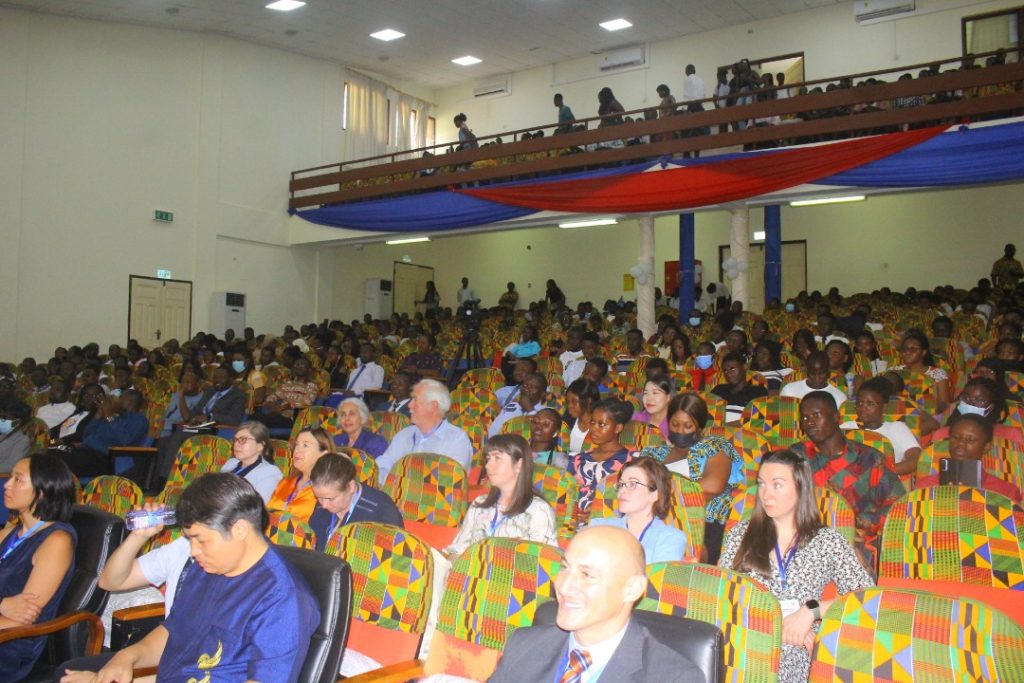By Prince Acquah
Cape Coast, Oct 20, GNA – Professor Joseph Shevel, the President of the Galilee International Management Institute, Israel, has urged Ghana to increase investment in education and training to spur sustainable growth in agriculture to ensure food security in the face of looming water crisis due to climate change.
He warned that the worsening situation of dwindling waterbodies owing to global warming could plunge the country into “civil war” if immediate actions were not taken to mitigate it, particularly in the area of agriculture.
He said 50 per cent of Ghana’s population was into agriculture but contributing only 20 per cent to Gross Domestic Product (GDP) in the midst of abundant rainfall and waterbodies, making the sector “inefficient.”
In contrast, he said with very little rainfall and only three per cent of the population doing agriculture in Israel, the sector was thriving and serving the entire country.
He attributed Israel’s success to high investment in education and training and challenged universities in Ghana to lead the change.
Prof Shevel was speaking on the topic: “Emerging higher education frontiers experiences from Israel, lessons for African Higher Education Institutions” at an International Symposium organised by the University of Cape Coast (UCC) as part of its 60th Anniversary celebration.
It was on the theme: “60 Years of Quality Education, Expanding Frontiers: Experiences and Lessons from International Partners,”
chaired by Professor Johnson Nyarko Boampong, the Vice Chancellor.
Prof Shevel said: “Half of Israel is desert and experiences less than one hundredth of millimeters of rainfall per year while the southern part experiences 20 millimeters a year. But in Ghana, you can have 20 millimeters in one day.”
“In Israel, 90 per cent of the water is reused. It is not a secret and it is also not unholy because it is Israel. Most of our agriculture today use recycled water.”
Israel produces oranges, watermelon, lemons and grapes in the desert through the dripping system.
“And if we can do it there, we can do it here. It is only a matter of know-how and the universities can lead it,” he said.
In 2017 alone, Israel exported 60 million flowers to Europe on Valentine’s Day and Ghana could do same with the necessary training, Prof Shevel said.
Israel was the only country in the Middle East with no oil and mineral resources, including water, but it had a bigger GDP than all the other countries in the bloc due to education, he said.
While Ghana invested less than two per cent of GDP in education, Israel invested 7.3 per cent.
Prof Shevel said Israel was the number one in the world in research and development and had the biggest share in the technology industry with 63 different companies through education.
“Education generally is a problematic field for politics because we see the results of education usually in the next generation but politicians want to see the results before the next election,” he observed.

Ghana, he said, had also been successful in some areas in which Israel had failed, hence the need to share experiences and learn from each other for mutual growth.
Prof Boampong, on his part, emphasised the need for institutions of higher learning to establish global partnerships in order to create mutually beneficial relationships.
He noted that it was through such international collaborations that the UCC attained it current status as the topmost ranked university in Ghana and West Africa, and the fourth in Africa.
The event was attended by delegations from the Bucknell University, University of Cincinnati, University of Rhode Island, University of Limerick, Millersville University, and International Youth Fellowship of Korea.
They took turns to share their experiences and beneficial collaborations with the UCC and the areas they had thrived.
GNA